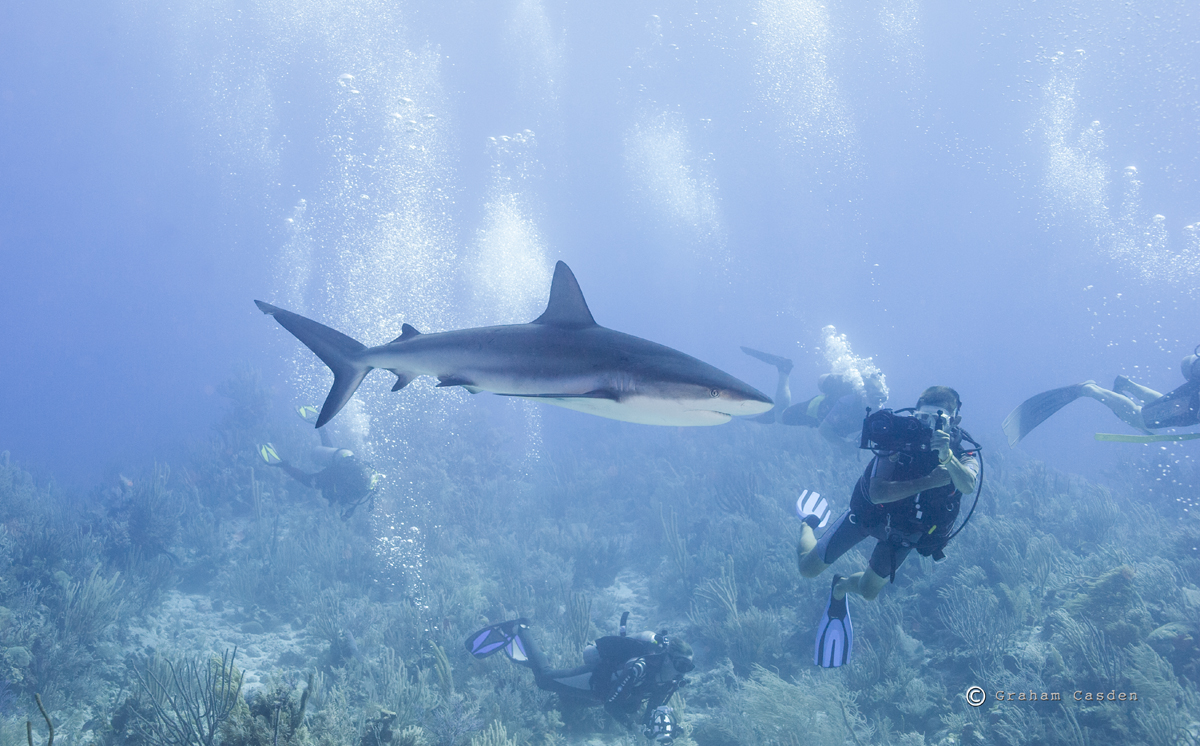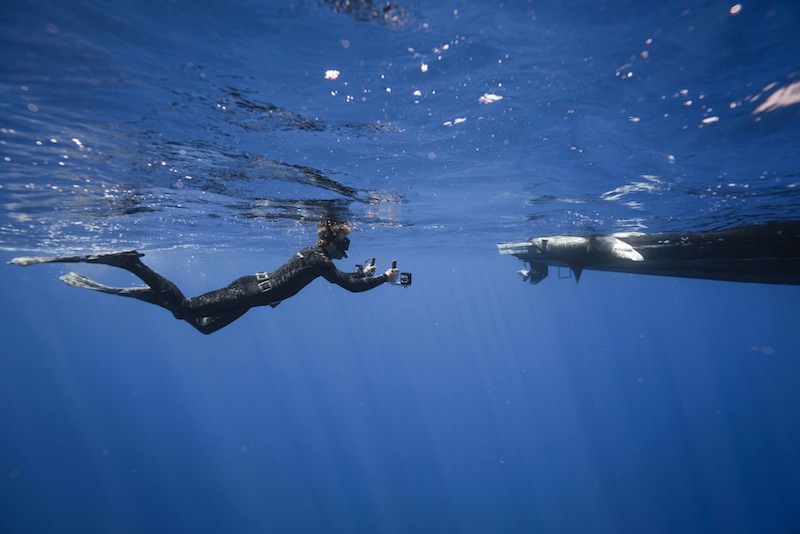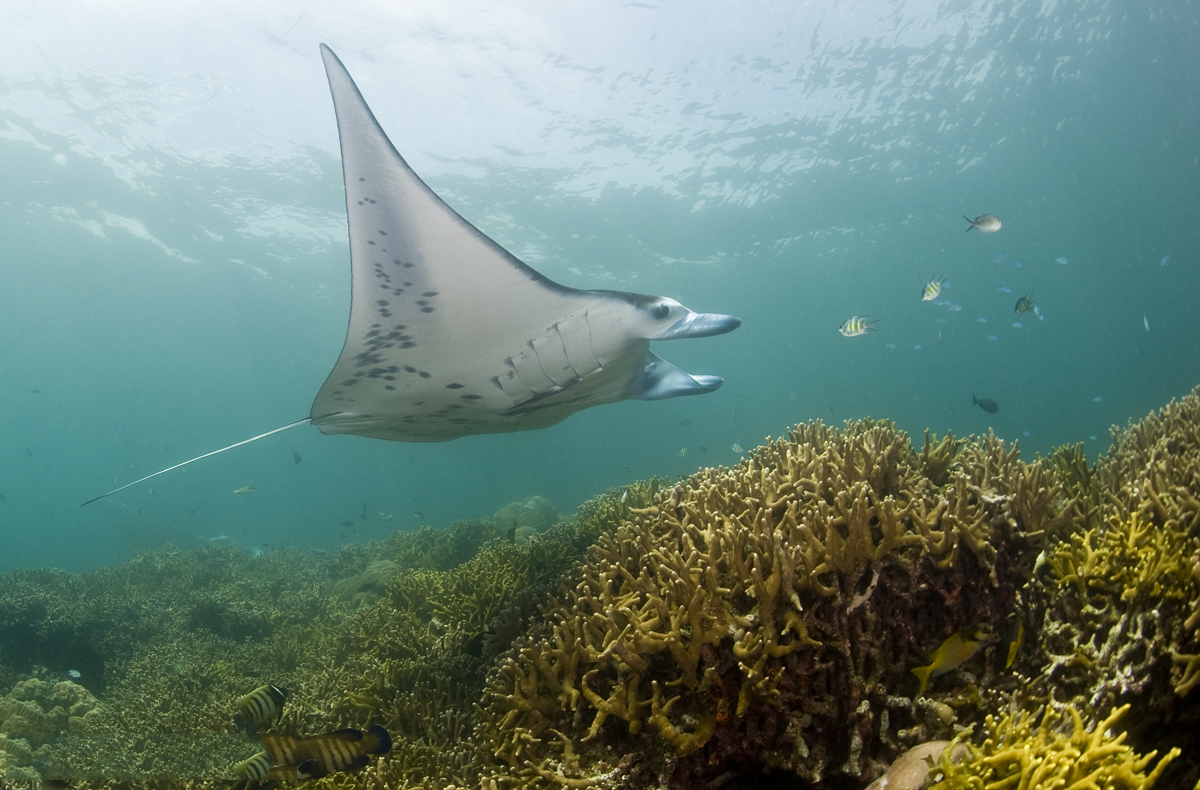October 10, 2017
Shark.
What’s your gut reaction when you hear that word? Do you get the chills and hear the Jaws theme music playing in your head? Do you picture surfboards with chunks missing? Cute, little seals flying through the air attempting to escape fate? Or, perhaps you immediately think of a highly-evolved group of fish that have been around for more than 400 million years?
Yes, 400 million years - to be as precise as we can, 420 million years according to fossil records. That’s 200 million years before dinosaurs roamed the Earth. Surviving mass extinction events, even the one that wiped out all those dinosaurs. Sharks, they’re pretty amazing creatures, but there’s no two ways about it; you are either in awe of them or you are slightly terrified and in no rush to jump into the ocean.

Through our outreach programs, I meet people from all over the world. Inevitably, sharks become a topic of conversation; everyone is curious, out of fear, wonder, and sometimes both. When working with younger students, I often joke that the busiest person in the ocean is the tooth fairy as sharks have a conveyor belt of teeth that never ends. When one tooth is lost, another is ready to take its place. Pretty genious when your very survival depends on your ability to feed and you don’t have any hands to work with. This brings me to everyone’s greatest fear: being bitten by a shark.
Sharks are curious. We’re a strange animal in the ocean. In some cases, we even resemble their typical prey of sea turtles and sea lions. Of course they might want to check us out a little closer. How can they accomplish this? With their hands? Not exactly. We’re just fragile animals and don’t hold up well to a curious investigation by a large fish. If sharks wanted to eat us, they would, and we wouldn’t be in the oceans all over the world.
In the United States, there are an average of 19 shark bites a year and a death due to shark bite once every two years. Humans just aren’t on the menu. You’re more likely to be struck by lightning than bitten by a shark. In 2016, there were 84 unprovoked shark bites worldwide (unprovoked means that the person was in the ocean minding their own business, not working with a shark in a research or aquarium setting). That’s less than 100 people bitten by a shark annually. Considering more than 350 million people visit coral reef coasts every year (think tropical beach), your odds are more than pretty good that you’ll never encounter a shark. If you think about it, that’s kind of sad too. Seeing a shark in the wild is an awesome experience; they’re ancient predators, uniquely designed for the world they live in. They’re not meant for our dinner tables in a soup.
Sharks are vital to the marine ecosystem. They’re the wolves of the sea, eliminating the slow, the sick, and the old from the breeding populations and pushing the strongest to survive and pass on their genes.  Sharks help to keep fish populations in check which in turn keeps the reef healthy. Sharks should not be feared. They should be revered for their perseverance, their evolutionary feats, and the work they do to keep marine ecosystems in balance.
Sharks help to keep fish populations in check which in turn keeps the reef healthy. Sharks should not be feared. They should be revered for their perseverance, their evolutionary feats, and the work they do to keep marine ecosystems in balance.
In the words of Dr. Sylvia Earle, “Sharks are beautiful animals, and if you're lucky enough to see lots of them, that means that you're in a healthy ocean. You should be afraid if you are in the ocean and don't see sharks.”
So the next time you hear the word “shark”, don’t let fear rule your mind; instead, think of an incredible fish that helps to keep the oceans healthy. You can learn more about sharks and their role in the marine ecosystem in our course of the month, The Truth About Sharks.




